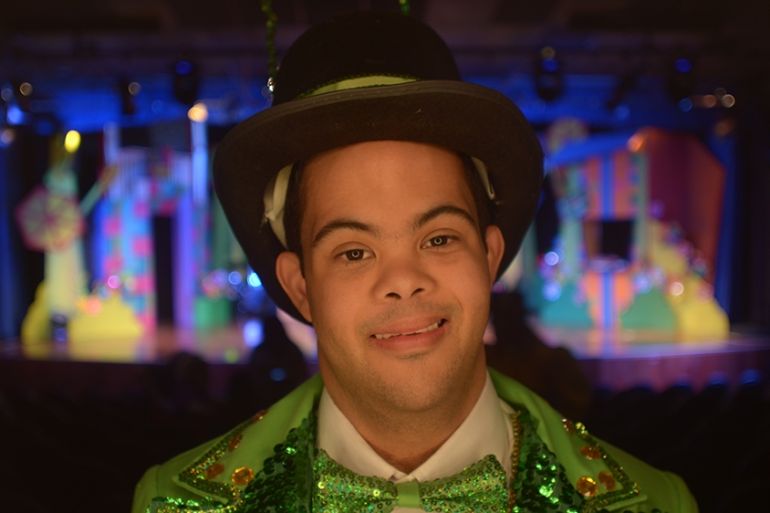
Time to Love: A Backstage Tale
A group of young actors with Down syndrome take on the challenge of staging a classic Panamanian play.
Editor’s note: This film is no longer available to view online.
In Panama, a troupe of first-time performers with Down syndrome take the classic play La Cucarachita Mandinga to the stage. They take on the challenges of memorising lines and learning choreography hoping to capture the attention of the public.
Keep reading
list of 4 itemsInside the pressures facing Quebec’s billion-dollar maple syrup industry
‘Accepted in both [worlds]’: Indonesia’s Chinese Muslims prepare for Eid
Photos: Mexico, US, Canada mesmerised by rare total solar eclipse
This demanding artistic process reveals the intimate world of these young aspiring actors, along with their fears, hopes and daily struggles.
![Maria Jose Paiz Arias, right, on stage during a performance of La Cucarachita Mandinga in Teatro en Circulo in Panama City [Raphael Salazar/Al Jazeera]](/wp-content/uploads/2017/03/b254327e942b4b4fbfc2563e24ba2a6d_18.jpeg)
FILMMAKER’S VIEW
By Guido Bilbao
Before getting involved in this film project, I had never had any relationship with someone with Down syndrome. In my work, I used to delve into topics like social conflict, politics, corruption and drug trafficking.
But then I met Rocio and Antonella, the twins who are featured in the film, through a friend of mine, their sister, Gloria. When I met the twins, I was blown away by their personalities. Rocio and Antonella told me that they were going to be in a play and I found the adventure they were about to embark on so amazing that I immediately saw a movie in it. We made it together: 12 teenagers with Down syndrome who dared to act in the first commercial inclusive play in Central America.
The first thing I had to do was face my own prejudice. I had no idea how to deal with people with Down syndrome: how to talk to them, how much I could ask from them. I did not want to treat them as kids, but I did not want to come across as harsh either. I was not sure if they were going to be able to achieve what they had set out to.
Prejudice is a wall that stands between the world and ourselves and young people with disabilities are never the ones who build the wall. The actors started laughing with me, started acting to the camera without being asked to, started giving me nicknames – my prejudices gradually disappeared and the actors’ “condition”, as they refer to it themselves, no longer dictated our interaction.
There was an unusual kind of courage, strength and talent in the actors with Down syndrome. It was amazing to see them overcome the challenges they had set for themselves, learning the lines, songs, choreography – and everything with such perseverance. Backstage life had its own ups and downs: there were fights, tears, laughter and love stories.
![Augusto and Rocio both have parts in La Cucarachita Mandinga and are a couple in real life [Raphael Salazar/Al Jazeera]](/wp-content/uploads/2017/03/1068307e02284efba22727fa3ca1be4f_18.jpeg)
I could see their self-esteem grow, which is much-needed in a society like Panama’s. Here, people with Down syndrome are not only discriminated against, they are hidden from view. It is as if they do not exist in public life. In fact, the theatre project was a response to some of the mothers’ realisation that their children have little chance of getting involved in society: there are few jobs for them – let alone fulfilling ones – no colleges and no governmental programmes to help them overcome some of their limitations and believe in themselves when they reach adulthood.
As the day of the premiere approached the actors faced a lot of pressure because of the high expectations generated by the project. Two weeks before the premiere, tickets had sold out for all dates and journalists attended rehearsals with their cameras to report the news that young people with Down syndrome could carry out such big projects.
Time to Love is a story about love and self-improvement that shows us what we get back when we accept diversity.